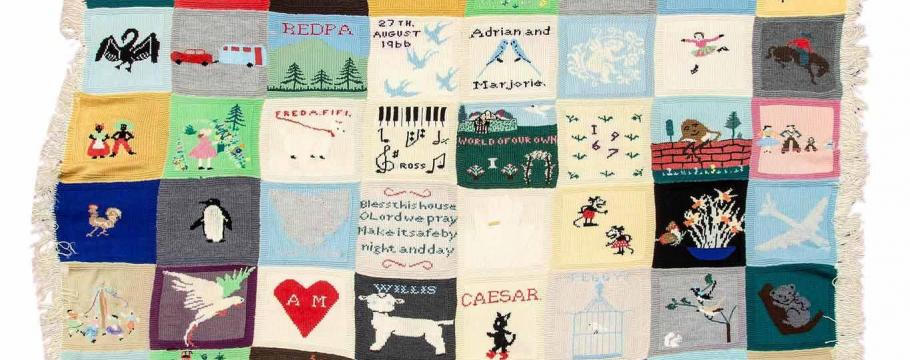
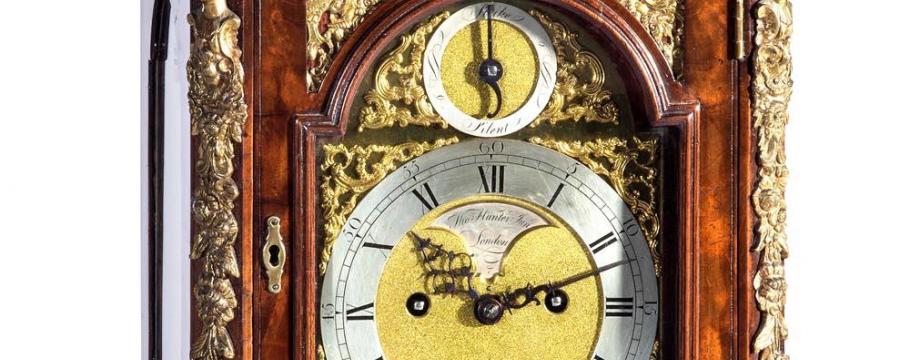
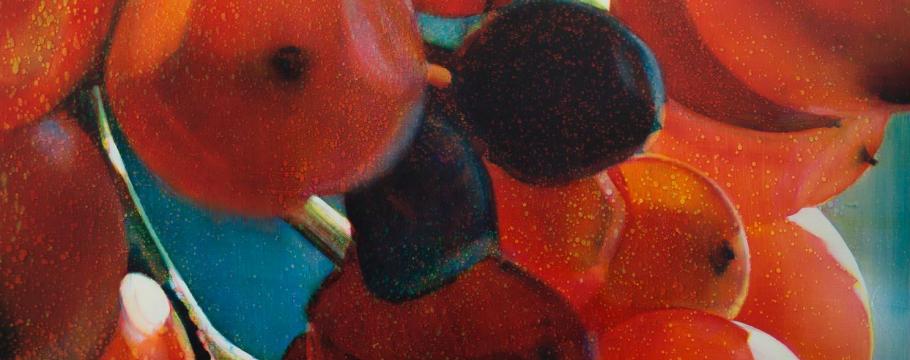
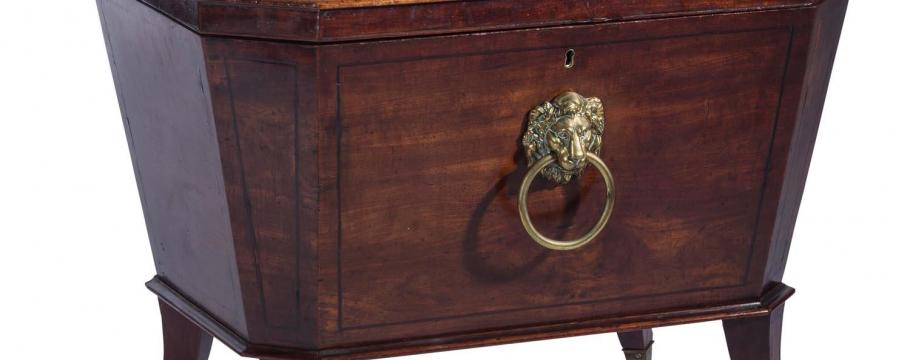
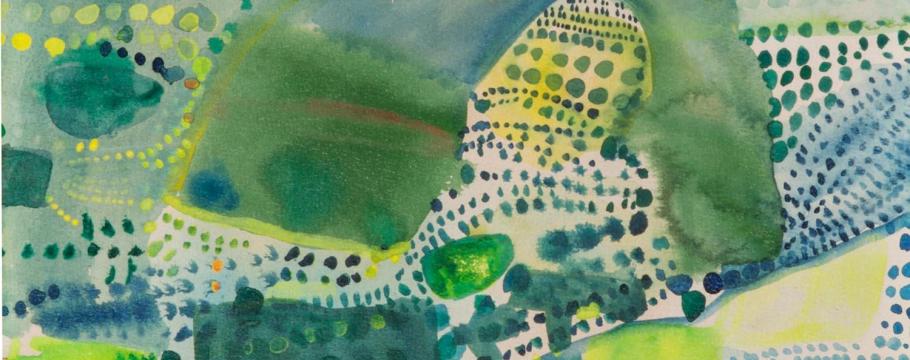
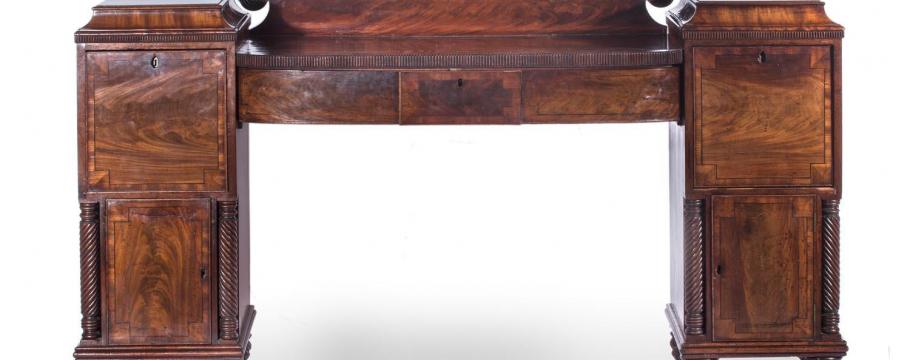
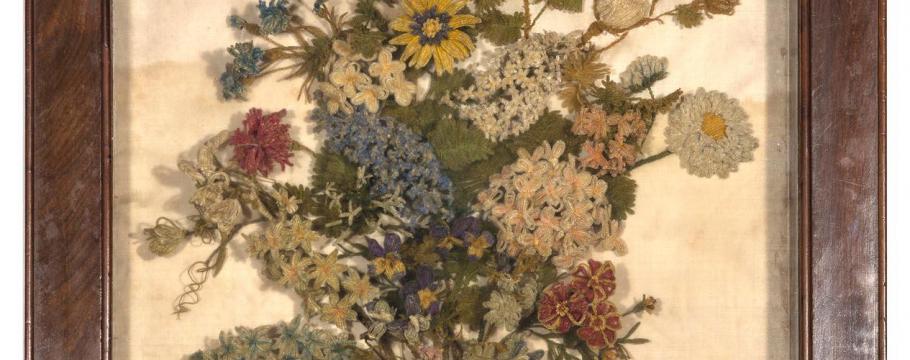
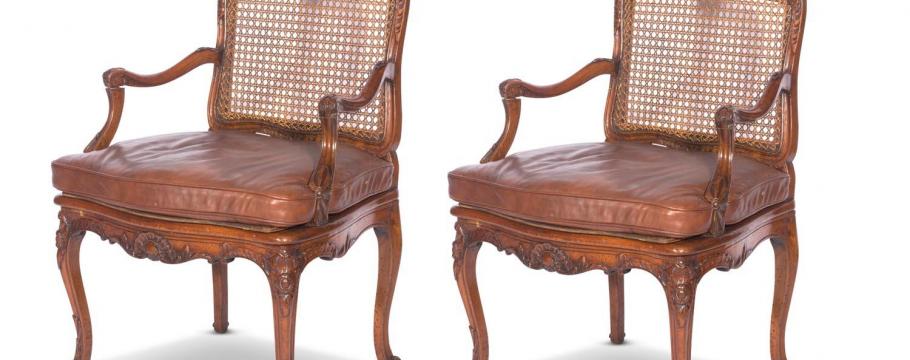
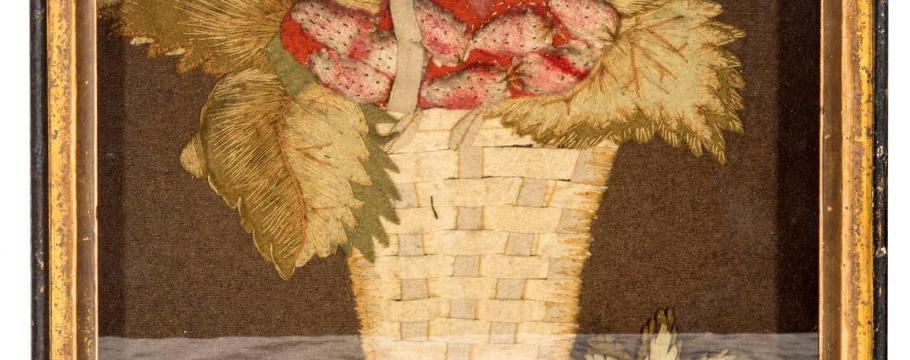
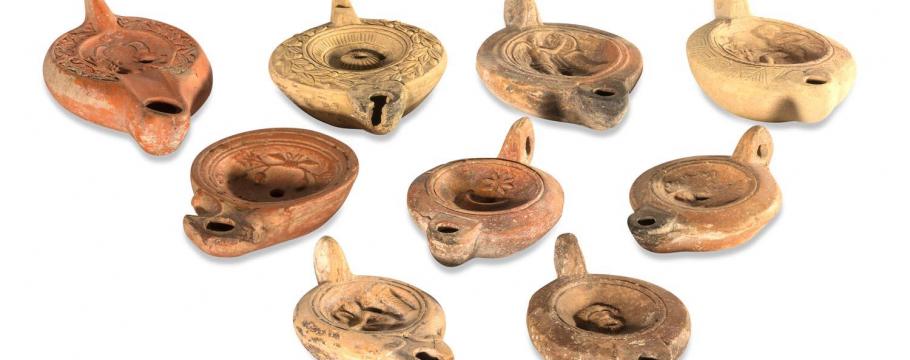
The inspiration for Dame Edna Everage has autobiographical quilt among auction bonanza
Author: Richard Brewster | Posted: 27th October, 2016
An international decorative arts auction containing items from three private collections – including those of controversial Australian restaurant critic Leo Schofield – will go under the hammer from noon Sunday October 30 at Mossgreen’s Sydney office 36-40 Queen Street, Woollahra.
Schofield, who has a had a lengthy career as a journalist, advertising professional, creative arts festival director and trustee of arts and cultural organisations, has several fine Regency pieces of furniture (including a giltwood mirror and George IV mahogany chiffonier) and Tasmania’s Marjorie Bligh (1917-2013) autobiographical quilt among his collection.
Bligh was a celebrated Tasmanian housewife and well-known author of books on domestic tips – and said to be the inspiration for satirist Barry Humphries creation Dame Edna Everage.
A journalist who currently contributes a weekly column to the Hobart Mercury, Schofield worked for many major Australian newspapers and magazines and in 1984 established the Sydney Morning Herald Good Food Guide with co-editors David Hale and Jenna Price.
From 1993-96, he was artistic director of the Melbourne International Arts Festival followed by a four-year stint in the same capacity at the Sydney Festival.
At the same time, he was appointed artistic director of 2000 Summer Olympics and 2000 Summer Paralympics arts festivals.
In 2010, Schofield became a judge on the Australian adaptation of the Iron Chef cooking program.
The auction contains the collection of Julian and Annie Beaumont, built up over many years from the 1970s to the 1990s.
A feature is the fine English circa 1780s bracket clock with an eight-day striking and repeating movement by Thomas Hunter Junior.
Hunter is cited in Baillie G.H. Watchmakers & Clockmakers of the World as working as an apprentice from 1734, gaining his freedom hi 1742.
He then worked from New Broad Street Buildings where he was appointed Warden in 1762, and Master three years later. He died in 1785.
Of particular note are two pieces of furniture that resided in England’s ancient Elizabethan manor Liscombe House until 1907.
The furniture, which originally belonged to Julian’s mother whose family the Lovetts lived in the manor, features a 19th century Georgian mahogany cellarette and Regency mahogany twin pedestal sideboard that has never been sold.
The manor, complete with a former 13th century chapel, is located near Soulbury village in Buckinghamshire.
Other interesting items in the Beaumont collection include a circa 1800 Georgian mahogany concertina action extending dining table by William Pocock and a large collection of needlework pictures.
These include a rare late 17th century silk chemille needlework bouquet of flowers and a felt needlework picture of strawberries in a basket.
Paintings in the collection include Tim Maguire’s Untitled 20040902, 2004 – an excellent example of his work – from Sydney’s Martin Browne Fine Art, John Olsen’s Portugal and Olive Trees 1966 and British artist Henry Tuke’s (1859-1929) Still Water 1902.
The third collection belongs to a gentleman whose eccentricities included 18th century French signed chairs and Roman antiquities.
The Louis XV chairs are stamped Phillipe and feature caned backs with leather cushions.
The Roman antiquities include terracotta bowls, amphoras, oil lamps and figures.





